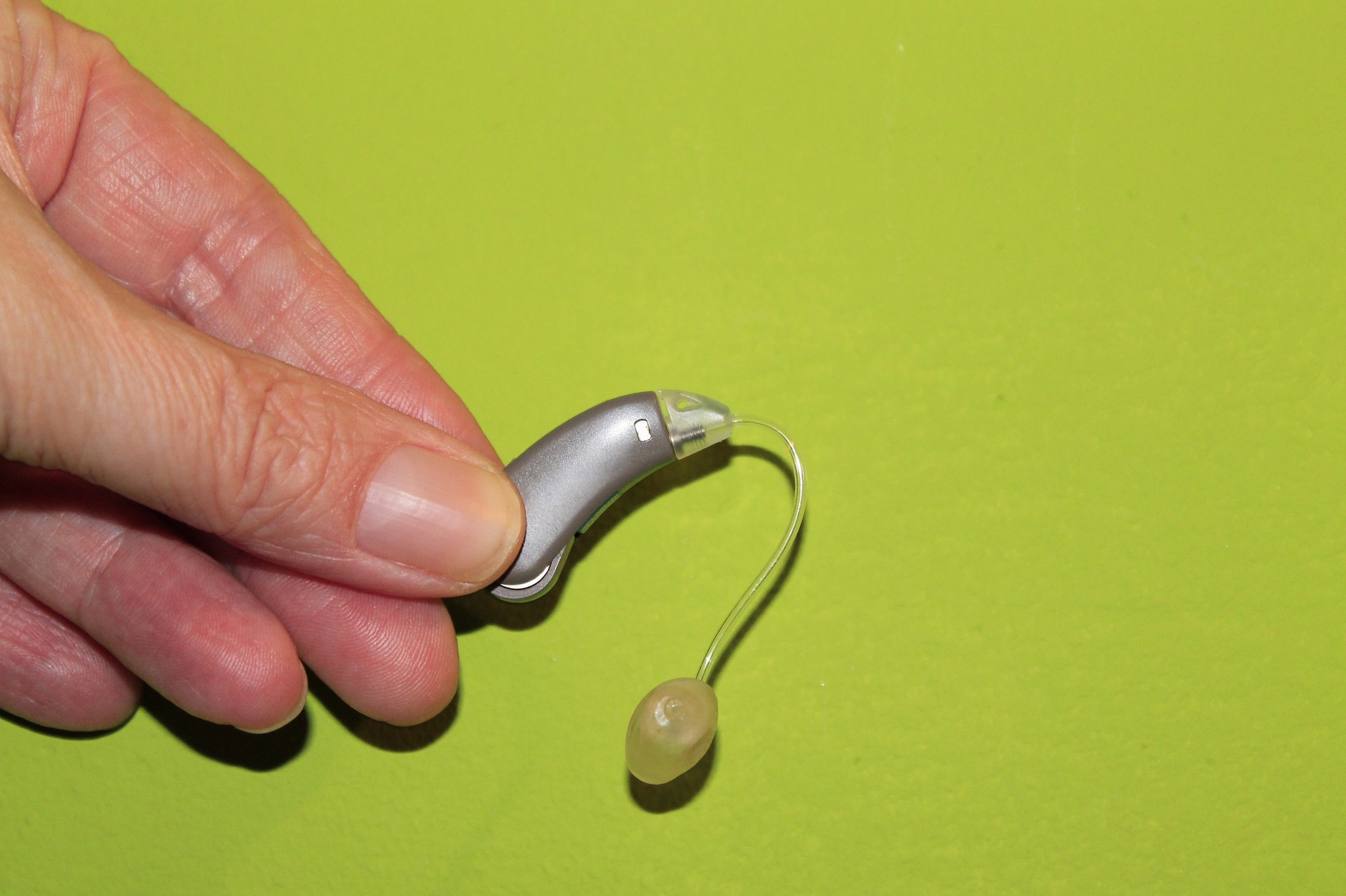In October, the Federal Over-the-Counter Hearing Aid Act will finally take effect, allowing consumers with mild-to-moderate hearing loss to purchase hearing aids without a prescription for the first time. Consumers and hearing aid makers are understandably excited. But there are concerns, too, over the efficacy of the devices that will enter this giant market, and whether hearing aids could become another source of online privacy risk.
What should you know before you shop for a hearing aid? Emily Dreibelbis wrote about it at PC Magazine, where she is a reporter. Listen to the interview above or read the transcript below.
This transcript has been edited lightly for clarity:
Texas Standard: When you buy a prescription hearing aid, an audiologist tunes it to your specific needs after a series of hearing tests. I think a lot of people are aware of that process. Is it different, though, with over-the-counter models or are you just sort of guessing what you need?
Emily Dreibelbis: It remains to be seen exactly how the over-the-counter process will work. There are some places like Costco that have hearing centers where you can get more of an audiologist experience. But I imagine there will be some that you can buy just in Best Buy or CVS, just like a pair of headphones or something like that. So I think it will really range. And price and service that you get with it will dictate kind of what you get.
Some consumers might say, ‘this is great. I can take care of it myself.’ Others would say, ‘yikes.’ I mean, this has been a pretty highly-regulated industry for some time. And don’t you have to know whether you’re getting a good match? The frequencies that are tuned for the device and what you actually need?
Even with audiologists, everyone knows hearing aids are kind of notoriously frustrating. And sometimes you have to go back multiple times to find what fits. So over-the-counter, some audiologists I talked to kind of speculated that people might have more access to hearing aids, might be able to pick one up pretty easily, but they might actually be underserved in terms of what it can pick up. Everybody’s hearing is different. There are some kinds of boilerplate hearing loss symptoms, but it still is very custom to the person and even the person’s ear and how it fits. So I think consumers should be aware that just because they bought a hearing aid, it might not be perfect for them. And I think it’s best for everybody, if people do have hearing loss, to get what they need. I think it just has a great trickle-down effect in so many ways. So be aware that, just because it’s over-the-counter, doesn’t mean it’s perfect for you and it might be a process to find the right things.
Well, one of the bigger warnings that you’re putting out there is that one’s privacy potentially could be at risk. How so?
Yes. So I wrote my article because I’ve been tracking the hearing aid startups for a while. I thought that was really interesting. I didn’t think hearing aids and startups would go in the same sentence. So when I started seeing all the venture capital money going to Bluetooth and hearing aids, artificial intelligence that can do really cool things like, in a crowded restaurant, reducing background noise and amplifying the voice of the person closest to the wearer. I mean, who can argue with that? There’s just so many ways that technology is improving hearing aids. But at the same time, especially with the over-the-counter decision, that technology is being brought to the masses. And when we think mass market, consumer tech, we think all of the other problems that we already see with privacy, data collection, your data being sold and you don’t know it — there’s lawsuits all the time about these things. And so this is just a new category of tech that more and more people will have access to, and it will have the same concerns as every other tech product.
Is there anything unique about hearing aids that makes users perhaps especially vulnerable when it comes to data privacy? Or is it just the usual warnings?
Yeah, with hearing aids, it’s an older population. People of all ages have hearing loss, but the vast majority – I think 80% – of hearing aid users are over the age of 80. So it’s a particularly vulnerable population that you don’t necessarily see in other places. The federal government and the AARP, all of these major organizations have fraud and scamming of the elderly really at the forefront. So it’s an ongoing issue, and now it’s just kind of a new avenue for it, although we’ve already seen this and in some hearing aid products already. But there might be, if not handled properly, more of those cases of data coming in through a hearing aid and being used in the wrong ways.
Well, what tips do you have for people who may be concerned about opening themselves up to loss of data by using these devices?
OTC-approved hearing aids will have a label on them. There’s a new label in development. So people should know what that label is and make sure they’re not buying counterfeit products. And to get the label, you have to comply with certain privacy laws. HIPAA, we know, but California and Europe also have their own online data-specific privacy laws. Of course, I wish there was one just for the U.S. more broadly, but that’s kind of a different political issue. But definitely make sure you’re not buying a counterfeit product online. Make sure it’s a hearing aid. Make sure there’s someone at the company that you can talk to and still have standards for the product, even though the access — it’s so easy just to swipe one at a store— I think, with such an important product, and so much at risk, you still need to really do your research.














